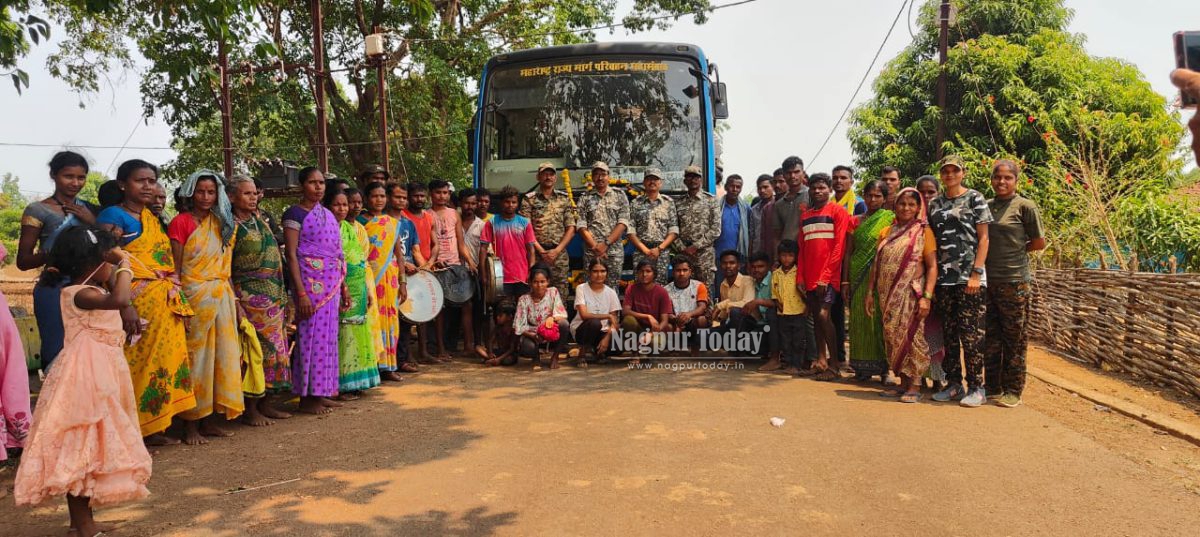The village of Katezari in Gadchiroli district, once notorious as a Naxal hotspot, recently welcomed its first-ever state-run bus — 77 years after Independence

Nagpur: In the 122nd episode of his monthly radio programme Mann Ki Baat, Prime Minister Narendra Modi turned the nation’s attention to a remote tribal village in Maharashtra that has become a symbol of transformation. The village of Katezari in Gadchiroli district, once notorious as a Naxal hotbed, recently welcomed its first-ever state-run bus — 77 years after Independence.
PM Modi highlighted the occasion as a historic moment in his Sunday broadcast, lauding it as a triumph of development over decades of fear and isolation. “Let me tell you about a village where a bus arrived for the first time,” said the Prime Minister. “The people there waited for years, and when the bus reached Katezari, they celebrated with drumbeats.”
Indeed, the launch of the bus service was much more than a transport update — it marked a shift in the narrative of Gadchiroli, from red terror to hopeful rejuvenation. The arrival of the bus was met with jubilant scenes as villagers danced and played traditional drums, symbolising a long-awaited connection to the outside world. The inaugural ride was flagged off in the presence of senior police officials, including SDPO Jagdish Pande and Senior Inspector Ajay Bhosale, underscoring the crucial role of law enforcement in restoring peace.
Despite having a pucca road for years, bus operations were previously impossible due to Naxal threats that loomed large over the region. The fact that public transport could finally reach Katezari, said Modi, signified a major milestone in the fight against extremism. He emphasised how the collective efforts of security forces and the government have helped bring normalcy and basic services to previously inaccessible areas.
Local media also spotlighted the significance of the bus service, describing it as a vital link to education, healthcare, and markets for Katezari’s residents. A senior police officer summed it up aptly, calling the bus “a vehicle of development” — not just for Katezari, but for surrounding hamlets as well.
The turnaround in Gadchiroli has been credited in large part to the focused anti-Naxal strategy spearheaded by Superintendent of Police Neelotpal. Under his leadership, 36 hardcore Naxals have been eliminated, 47 have surrendered, and more than 70 have been arrested. These efforts were carried out under the supervision of DIG Ankit Goyal and IG Sandip Patil of the state’s Anti-Naxal Operations cell.
“Katezari’s development is a living example of how normalcy is returning to areas that were once under the grip of Maoist fear,” said Neelotpal. He added that the success story of this small village is now resonating on a national level, thanks to the sustained push by security forces and local administration.
For the villagers of Katezari, the arrival of a bus means more than just transportation—it offers access to opportunities that were denied for decades. PM Modi’s mention of the event in Mann Ki Baat reaffirmed the government’s commitment to ensuring that no part of the country remains untouched by progress.
“This is what collective resolve against Maoism can achieve,” Modi said. “Basic facilities are now reaching even the remotest corners of the nation.”

















